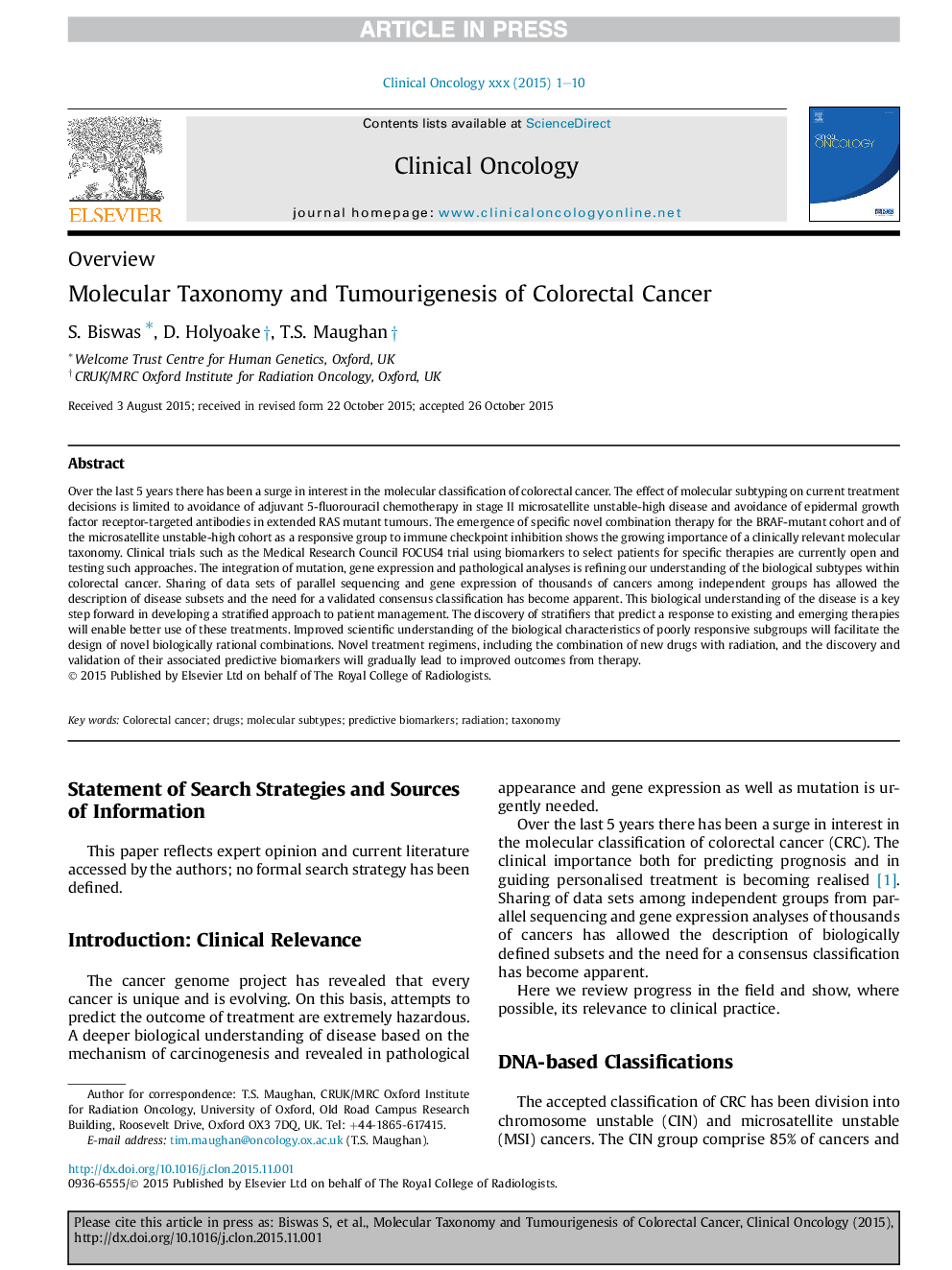| Article ID | Journal | Published Year | Pages | File Type |
|---|---|---|---|---|
| 5698379 | Clinical Oncology | 2016 | 10 Pages |
Abstract
Over the last 5 years there has been a surge in interest in the molecular classification of colorectal cancer. The effect of molecular subtyping on current treatment decisions is limited to avoidance of adjuvant 5-fluorouracil chemotherapy in stage II microsatellite unstable-high disease and avoidance of epidermal growth factor receptor-targeted antibodies in extended RAS mutant tumours. The emergence of specific novel combination therapy for the BRAF-mutant cohort and of the microsatellite unstable-high cohort as a responsive group to immune checkpoint inhibition shows the growing importance of a clinically relevant molecular taxonomy. Clinical trials such as the Medical Research Council FOCUS4 trial using biomarkers to select patients for specific therapies are currently open and testing such approaches. The integration of mutation, gene expression and pathological analyses is refining our understanding of the biological subtypes within colorectal cancer. Sharing of data sets of parallel sequencing and gene expression of thousands of cancers among independent groups has allowed the description of disease subsets and the need for a validated consensus classification has become apparent. This biological understanding of the disease is a key step forward in developing a stratified approach to patient management. The discovery of stratifiers that predict a response to existing and emerging therapies will enable better use of these treatments. Improved scientific understanding of the biological characteristics of poorly responsive subgroups will facilitate the design of novel biologically rational combinations. Novel treatment regimens, including the combination of new drugs with radiation, and the discovery and validation of their associated predictive biomarkers will gradually lead to improved outcomes from therapy.
Related Topics
Health Sciences
Medicine and Dentistry
Oncology
Authors
S. Biswas, D. Holyoake, T.S. Maughan,
